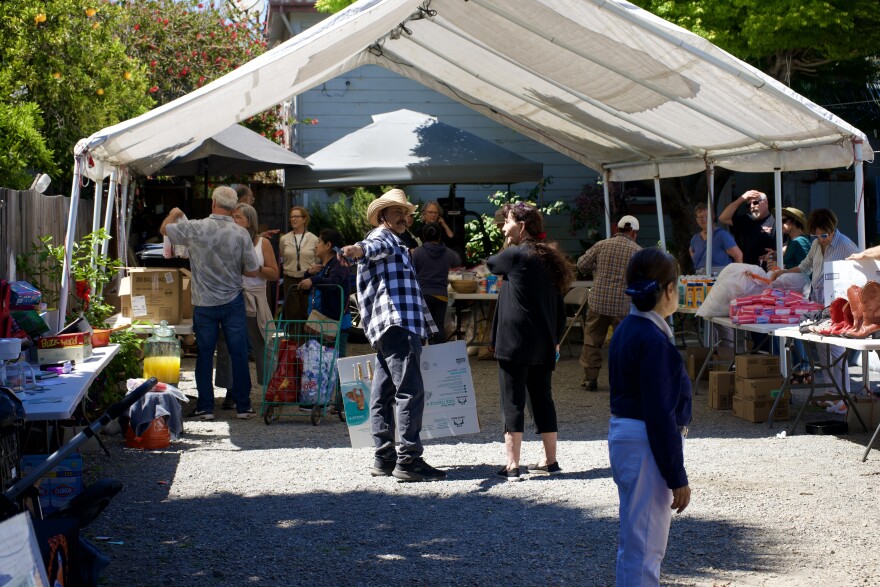May marks the beginning of harvest season—when some 800,000 farmworkers in California get to work picking food that lands on tables around the world. In 2023, California farms made nearly $60 billion but many farmworkers on the Central Coast still don't have enough to eat.
Ann López has been advocating for farmworker rights for nearly two decades. Her organization, Center for Farmworker Families, started monthly food distribution events to support hungry farmworkers six years ago.
"I found a family hungry in this community. The kids were crying because they were so hungry. And I thought, we're not gonna do this,” says López. “This is immoral.”
López called Second Harvest Food Bank Santa Cruz County to figure out a solution to feeding the farmworker community. Second Harvest partners with 173 programs across the county to deliver roughly 10 million pounds of food annually.

They were among the handful of organizations that provided food for the first event. Now, over 20 organizations pitch in items including clothes, toiletries, toys, and household goods for farmworkers to take home free of charge.
A National Agricultural Workers Survey estimated nearly 25 percent of California farmworkers were living below the poverty line before the pandemic. While these events help farmworkers get closer to meeting their basic needs, how many families show up varies.
Past events have provided goods for up to 400 families, López says, but this month roughly 90 families turned out. Ernestina is a retired farmworker who has worked with López for 14 years and says the threat of Immigration and Customs Enforcement (ICE) stopped people from coming.
"Fear doesn't let us move forward. Today, many families missed out because there were rumors of ICE," Ernestina, who asked us not to use her last name, says in Spanish. "While people are scared, they also need to have food at home."

Hikes in living expenses and grocery prices are reasons people—many of whom lack legal status—give for why they show up to these events. The American Farm Bureau estimates half of farmworkers lack proper documentation and Isabel is one of them. She also asked us not to use her last name.
Isabel has worked every harvest since she turned 18 and came to California almost a decade ago from Mexico. With three children under the age of 10, events like these help her and her husband feed their family.
"There are times when even going out to the store is scary. And right now it's—go to work, go home, get food, and go back home," says Isabel, in Spanish. "We really don't go out, like to the park with my kids, to the store, or even go out and eat with the kids."
With fear of the Trump administration's deportation goals, picking up food at these events remains one of the few places farmworkers feel comfortable going these days. Another direct relief group providing food to farmworkers is Pajaro Valley Loaves and Fishes.

"We have such an abundance of fresh produce—organic produce—but access to that is sometimes very difficult. It is also very expensive," says Loaves and Fishes executive director Ashley Bridges.
The organization provides around 120 meals every day and 1,200 food bank baskets each month to people who are food insecure. More than half of those folks are farmworkers.
Both Loaves and Fishes and Second Harvest observed dips in food distribution after Donald Trump was re-elected as president. Now, with spring harvest in full swing, foot traffic remains low for other reasons.
"People are starting to go back to work, so we naturally slow down at this time. And that balks the stereotype that once people start getting assistance that they're stuck on it. And that is definitely not true here," says Bridges.
Loaves and Fishes is bracing for what's to come when needs increase. No matter the president or season, Bridges says food will still be available.
"We're worried about government cuts," says Bridges. "But until we know exactly what is cut, we're just hoping for the best and preparing for the worst."
KAZU's Eduardo Gonzales-Torres translated from Spanish to English for this report.





